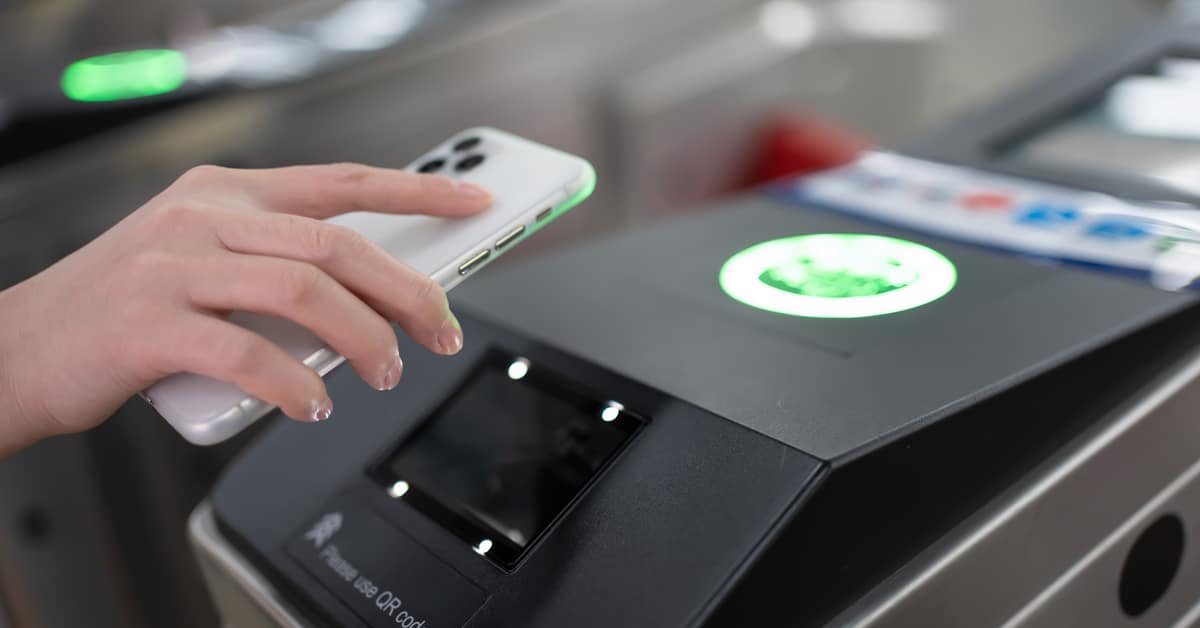I was so distracted from abnormal world events these past few years that it didn’t hit home that the Coyotes…
Ticketing Apps … Foul or Fair?

For those of you not keeping score, a lot has changed in the world of professional sports over the past decade. There’s been a worldwide pandemic, a couple of season-delaying strikes, major rule changes, widespread legal gambling, conference realignments, and a significant (and ongoing) shift in broadcast rights.
Also, let’s not forget that we now should refer to collegiate athletes as professionals.
Upon further review, most of these changes did not really have a huge impact on the one entity that’s ultimately responsible for most of this change… namely, the paying fan. Yes, money. That is the primary driver of change in the world and sports is everything but immune to that.
One change that has gone relatively unnoticed is the gradual yet seemingly overnight transformation from the printed, paper ticket to the digital ticket that serves as the norm for almost every venue that hosts a major professional sporting event.
But what does a digital ticket mean to teams, sponsors, and fans? Beyond the obvious convenience, what are the advantages and potential disadvantages of the digital ticket to the league, team, or event that utilizes them?
The Digital Ticket is Here to Stay
Ticket apps eclipsed more than $10 billion dollars in revenue in 2022. The reason is both intuitive and simple. In a world that has become increasingly digital; sale, share, and resale all are facilitated on these highly adaptable platforms.
Growth typically begets consolidation, so we saw industry leaders Ticketmaster, Stubhub, and Seat Geek strike league deals as well as team deals while also buying up smaller companies in their space.
The convoluted nature of the business also lends itself to overlap, meaning you could readily purchase or resell a ticket to the same sporting event using either platform or one of numerous others.
Digital Ticketing Platforms… It’s Complicated.
Ticketmaster is the clear industry leader with a 65% market share which has landed them squarely in the sites of Senate hearing based on antitrust allegations and operational malfeasance. All of which were brought to light by the handling of the Taylor Swift presale debacle which, as a sports fan, I couldn’t care less about.
I’m a sponsorship guy… not a ticketing guy. From what I understand, the team sets the ticketing strategy (including price), and works through the vendor to sell and distribute their ticketing assets.
Therefore, having a primary ticketing app partner facilitates digital ticket distribution without the team having to create their own platform. In doing this, the team saves the cost and headaches that such a platform would create. The more advanced platforms like Ticketmaster, Stubhub, and Seat Geek also provide teams with important consumer data to their partners.
For a fee, of course.
Some leagues, teams, and events are engaging in a dynamic pricing model, which is similar to how airlines sell seats. That’s becoming more commonplace in this space. To me, it makes the digital ticketing platform a highly capable virtual ticket scalper – as a sports fan, I don’t like that at all.
For a league, team, or event that has other priorities, having their ticketing ‘handled’ in this manner is advantageous. For the fan of said sports, this makes the digital ticket potentially way more expensive.
The Problem… or Opportunity, as I see it.
I want to be cautious here with my observations as I’m sure there are a multitude of variables at play here. My concern, from a team perspective, is that giving a third-party platform too much (pick your word here: control, leeway, access) to your fanbase can be a negative.
Ultimately, the team can be held accountable for the ticketing platform’s issues. If the relationship is not properly managed it also precludes the league, team, or sporting event from maximizing the digital touch point (and relationship) that the ticket purchase represents.
Teams… Some get it, some don’t. Digital Ticketing Platforms… Some get it, some don’t.
There is a great variance in how a league, team, or event structures a deal with a ticketing app. I am certain that the fees are dictated by services rendered by said platform. So, when challenges occur, the failure could very well be on the league, team, or event who either didn’t have the time, money, or foresight to set up the proper communication that should take place between the league, team, or event and the person who ultimately pays them… namely, the paying fan.
Leagues, teams, or events that engage ticketing platforms minimally not only risk alienating the fan, but can also miss other important opportunities associated with having a ‘relationship’ with your paying customer.
For the most part, leagues, teams, and events get most of their revenue from three (3) distinct functions: Rights deals, sponsorships, and ticket sales. Since it’s 2023, we’ll give an honorable mention to gambling revenues as well. When leagues, teams, and events engage a third-party ticketing vendor, they can (emphasize can) lose the ability to enhance the customer’s game day experience with important information like parking, game times, and most importantly in my eyes, INCENTIVES TO ENGAGE SPONSORS.
In our market, some leagues, teams, and events engage their fans through their digital ticketing platforms quite well … and some, don’t. It’s not a check the box execution for any league, team, or event but with so much happening in the business of sports, it’s an unfortunate reality.
You, the fan vote with your wallet.
Want to learn more about how your sports ticket should engage sponsors including a data based idea that I layed out for a significant collegiate event in the market? Send me an email at ed.olsen@linedrivesportsmarketing.com or give me a call at 602.284.6722.



